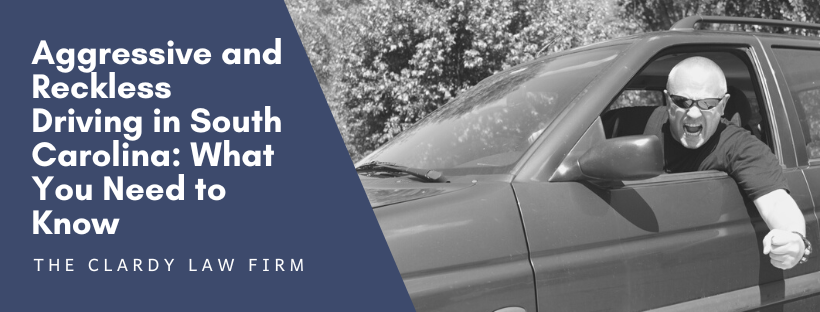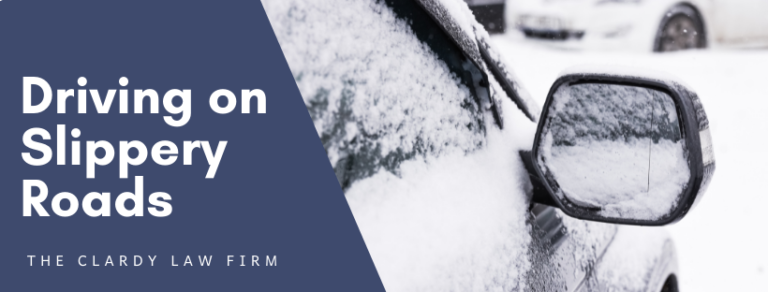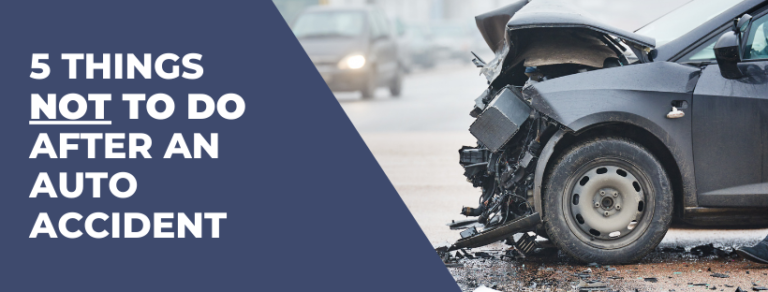We all have bad days. Running late, having a tough day at work, or other emotional factors can all affect our ability to think clearly and drive safely. These can trigger aggressive driving behavior like honking and tailgating, leading to dangerous accidents. If you’ve been a victim of an aggressive driver, it certainly isn’t a pleasant experience and can impact your life even if an accident doesn’t occur.
In some cases, aggressive drivers won’t let up and continue their harassment. This is when the situation becomes dangerous. Accidents can easily occur, especially if one or both parties are noticeably upset. Depending on the amount of traffic nearby, the size of the vehicle, and the speed at which an aggressive driver is traveling, engaging in aggressive driving can be fatal.
Unfortunately, South Carolina ranks 3rd in the United States for fatal reckless driving crashes, at 12.8 fatal crashes per 100k residents. Minor frustrations may seem harmless but can result in sudden angry outbursts from drivers that compromise the safety of everyone on the road.
What Is Aggressive Driving?
Road Rage, Reckless Driving, Aggressive Driving — it goes by many names and means a driver is disregarding the safety of others and driving with reckless abandon. It comes in different forms, including:
- Excessive honking
- Speeding
- Failure to yield or stop at signs
- Rapidly and frequently switching lanes
- Yelling or making obscene gestures
- Tailgating or following other vehicles too closely
- Deliberately cutting off other drivers
- Accelerating or decelerating to provoke other drivers.
You’ve most likely seen these behaviors at least once in your life. When someone does one or multiple things on this list, they are participating in aggressive driving, creating an inherent risk that can lead to serious injury and death.
Who Is Driving Aggressively?
According to a study by AAA, young men are the most likely culprits of engaging in aggressive driving, but young women aren’t far behind. Here are some factors that contribute to their increased likelihood of reckless driving:
- Youth and impulsivity: Research suggests that younger individuals, particularly those in their late teens and early twenties, tend to be more impulsive. This impulsivity can manifest on the road as aggressive driving behaviors, such as excessive speeding, tailgating, and rapid lane changes.
- Peer pressure and social influence: Younger drivers may be influenced by their peers and social circles, which can normalize and reinforce aggressive driving behaviors. Seeking validation, fitting in, or trying to impress others may lead young drivers to engage in riskier driving habits.
- Inexperience and overconfidence: Young drivers often have less experience behind the wheel, leading to overconfidence and a sense of invincibility. This overconfidence may result in reckless driving behaviors, including aggressive driving.
- High energy levels and competitiveness: Younger individuals tend to have higher energy levels and may have a greater desire for excitement and thrills. This energy and competitiveness can translate into a more aggressive driving style.
- Emotional factors: Young people may be more prone to experiencing heightened emotions, such as frustration, anger, or impatience, which can contribute to aggressive driving tendencies. The combination of emotional reactivity and the relative lack of emotional regulation skills can increase the likelihood of aggressive driving behavior.
Regardless of gender, older adults are less likely to participate in risky driving, but certain events like highly congested traffic or emotions from your personal life can trigger these behaviors. If you’re upset, it’s best to calm down before you get behind the wheel or take deep breaths if you cannot stop driving.
Dangers of Aggressive Driving
Aggressive driving poses various dangers to both the aggressive driver and other road users. Here are some of the risks associated with aggressive driving:
- Increased risk of accidents: Aggressive driving behaviors such as excessive speeding, tailgating, and frequent lane changes significantly increase the risk of accidents. These actions can lead to a loss of vehicle control, reduced effectiveness of safety equipment, and longer stopping distances. The higher the speed and the more aggressive the driving behavior, the greater the risk of a collision.
- Higher likelihood of fatalities: Speeding, a common manifestation of aggressive driving, accounts for approximately one-third of all motor vehicle fatalities. Speeding increases the severity of crashes and reduces the ability to react to potential dangers on the road. In 2021 alone, speeding-related crashes claimed the lives of 12,330 individuals.
- Decreased effectiveness of occupant protection: Engaging in aggressive driving behaviors can diminish the effectiveness of seat belts, airbags, and other safety features designed to protect occupants in the event of a crash. The higher the speed and the more aggressive the driving behavior, the higher the risk of injuries resulting from reduced protection.
- Higher likelihood of road rage incidents: Aggressive driving can escalate into road rage, a more extreme form of aggressive behavior. Road rage incidents involve violent and criminal acts intending to harm other drivers. These incidents pose serious risks to everyone involved, which can lead to severe injuries or fatalities.
- Negative impact on mental and emotional well-being: Aggressive driving behaviors can contribute to heightened stress, anger, and frustration both for the aggressive driver and other road users. This emotional strain can negatively impact mental well-being and increase the likelihood of hostile interactions on the road.
- Legal consequences: Aggressive driving is dangerous and against the law. Committing aggressive driving offenses can result in legal consequences, including fines, license suspension, and criminal charges. These consequences can have long-lasting effects on an individual’s driving record and insurance premiums.
How to Avoid Aggressive Driving Accidents
Irrational drivers are usually mentally unstable and can be easily set off. As someone sharing the road with them in a multiple-ton machine, it’s important not to lose your temper if something like this happens. It can be easy to react to someone with the same level of hostility, but there are ways to deal with an aggressive driver and keep your cool to prevent an accident from occurring.
Get Out of Their Way
If someone is driving aggressively, get out of their way. If they cut you off, back up and give them space in front of you. If they’re rapidly switching lanes near you on the interstate, try to move to a lane away from them.
Pull Off or Let Them Pass
If you’re driving down a one-lane highway and an aggressive driver is tailgating you, it’s easy to avoid the situation by pulling off at the next exit so they can get around you.
Use Signals and Be Aware
Being a conscious driver means always using your turn signals with adequate notice for drivers behind you. Communicating your intentions to turn keeps everyone safe on the road, and something as small as using your turn signal too late can set off an angry driver.
Ignore Rude Gestures
Aggressive drivers often try to provoke other motorists by shouting or making obscene gestures. If you witness this behavior, ignore the driver and don’t engage with their obscenities. Focus on getting to your destination safely.
Avoid Using Your Horn
Our vehicle horns are primarily for defensive purposes, not aggressive ones. Unless you’re alerting another driver of potential danger or other defensive reasons, avoid using your horn, and stick to short honks rather than long, repeated blasts.
Don’t Take Things Personally
If someone cuts you off in traffic, don’t assume they did so out of spite; maybe you were in their blind spot, and they didn’t see you. You are responsible for your safety and reactions to situations, and remaining calm and not taking the actions of others personally will help you avoid reckless driving situations.
What to Do If You’re in an Aggressive Driving Accident
If an aggressive driver continues their behavior and causes an accident, it’s essential to remain calm. If you’re not involved, stay clear of the situation but note details of the accident in case you need to be a witness, like the driver’s license plate number and what happened.
If you are the victim of an accident with an aggressive driver, do not approach the person. Avoid a confrontation and let the police deal with them directly. Call the police if you can, get information from witnesses, and take photos of the damages.
Provide as much information as you can about the other driver, including:
- Vehicle make and model
- License plate number
- Vehicle color
- Anything unique about the vehicle (bumper stickers, window tint, damage, lettering, etc.)
- A description of the driver.
If the at-fault party is calm, obtain their information and their insurance provider’s information. If this isn’t possible, ask the police for a copy of the police report. As soon as the police release you from the scene of the accident, seek immediate medical attention and call a car accident attorney. Even if you don’t notice any injuries, you could have “hidden” injuries that may take hours or days to manifest.
Don’t Discuss the Aggressive Driving Accident with Insurance Companies
Insurance companies are trying to make money. If the at-fault party’s insurance provider contacts you directly, refer them to your attorney and don’t answer any questions. They may try to twist your words and use them against you while attempting to deny your rightful claim to damages as the victim of an accident. Let your trusted attorney talk for you, even if it’s your insurance company.
Statute of Limitations
In South Carolina, you only have three years from the date of the accident to file a claim. While three years may seem like a lot of time, if the at-fault party believes they don’t owe you damages, you may need to launch an investigation for your case. You may need to contact witnesses, including any police officers at the scene.
You’re more likely to remember the accident and the details surrounding it immediately after, which is another reason you shouldn’t wait to call a car accident lawyer.
If you’ve been a victim of reckless driving in South Carolina, call our car accident lawyers at The Clardy Law Firm to get the compensation you deserve.





